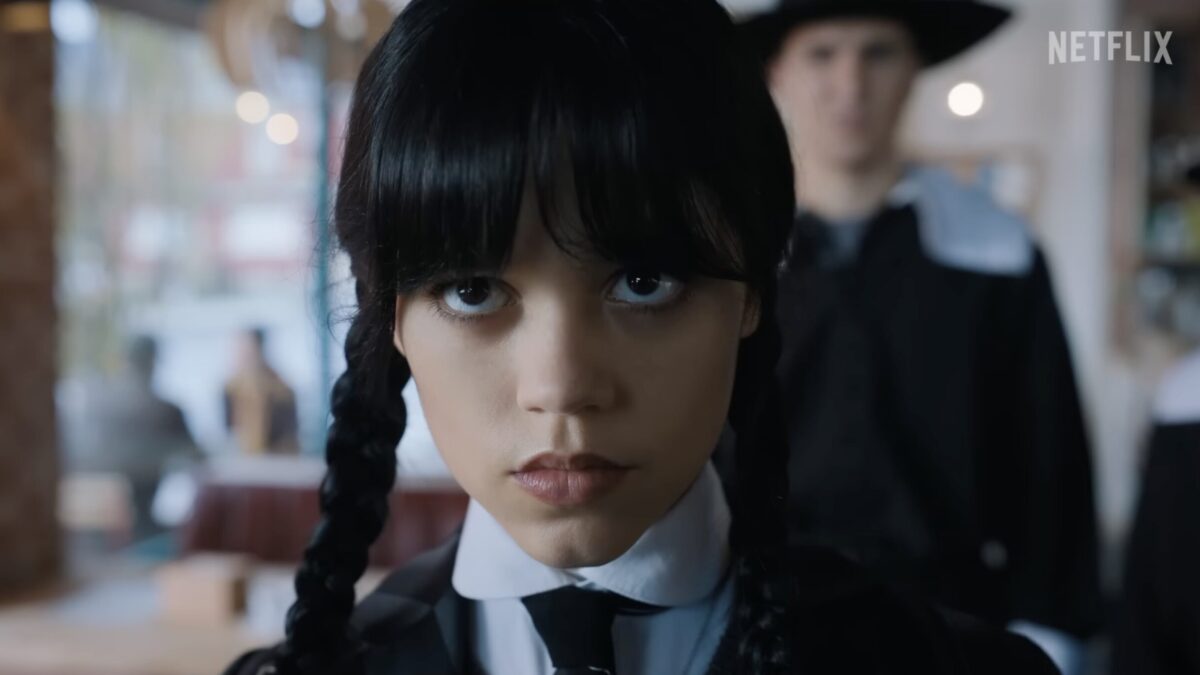It didn’t take long for a handful of viewers to decide that Netflix’s Addams Family spinoff series “Wednesday” is racist, for the crime of featuring villains who happen to be black.
The media predictably seized on the few tweets to contrive a controversy surrounding Netflix’s currently No. 1 show. But when one outlet reached out to Executive Producer Tim Burton for comment on the “racism” smears, his office deftly wrecked the media, getting out ahead of the non-story in a way that should be replicated anytime woke nonsense rears its ugly head.
“I’m not forwarding a comment request this silly to Tim,” said Mike Simpson, a representative for Burton, who also directed a few episodes of the series. “However, apparently Daylight Savings Time is racist,” Simpson reportedly added with a link to a recent CNN article, which argues that black and brown people don’t sleep as well because of “historical and persistent forms of structural racism,” and therefore that changing the clocks leads to “adverse health consequences” for them.
Warning: light spoilers ahead.
If critics would spend more time being viewers and less time being victims, however, they would soon see the main villains in the series turn out to be white.“Wednesday” is titled after the lead character and oldest Addams Family daughter, Wednesday Addams, played by former Disney star Jenna Ortega. Ortega’s character is an adolescent oddball who has blossoming psychic powers. She attends “Nevermore Academy,” a school dedicated to educating “outcast” children with different magical abilities.
“Nevermore Academy,” by its very mission, should be an inclusive utopia, but Wednesday quickly learns from her blonde and bubbly werewolf roommate, Enid, that the school is just as cliquey and socially ostracizing as any other high school.
The show’s lead black character, and the academy’s queen bee and bully, is Bianca Barclay (Joy Sunday), a siren with the ability to manipulate people via her magical powers of persuasion. Initially, Bianca is controlling and cruel to her classmates. Later in the series, though, we learn that Bianca doesn’t actually want to manipulate others and escaped to Nevermore because her mother was pressuring her into joining a cult of siren online scammers.
As the series progresses, it becomes apparent that Bianca is misunderstood and insecure — not a magic version of Regina George from “Mean Girls.” Bianca also bonds with the second black character in question, Lucas Walker, who has a more minor role as another local bully. In the end, both Bianca and Lucas have satisfying character arcs and team up with Wednesday to play integral roles in defeating the show’s main bad guy. In the final episode of the series, Wednesday, Bianca, Lucas, and their friends fight three villains — all of whom are white.
Another shocking part of the “racism” accusations is that “Wednesday” does plenty to appease the woke left. The evilest character in the show is a prejudiced Pilgrim who is resurrected from the dead to kill all the outcast children at Nevermore. The very idea of a sinister Pilgrim aiming to murder all outcasts is a total rejection of history. The Pilgrims were pious Christians, not murderers, and were themselves persecuted religious outcasts. “Wednesday” also features two lesbian “moms,” and Wednesday’s roommate Enid stands up to her parents who try to force her into going to a werewolf conversion camp (which is evidently a weird metaphor for gay conversion therapy).
Burton became a target of the left after he made it clear over half a decade ago that he is interested in filmmaking, not adhering to a diversity checklist. In 2016, Samuel L. Jackson, star of Burton’s film “Miss Peregrine’s Home for Peculiar Children,” speculated that he was the first black lead of a Burton film. Burton responded to Jackson’s comments in a subsequent interview, saying:
“Nowadays, people are talking about [film diversity] more,” but “things either call for things, or they don’t. I remember back when I was a child watching ‘The Brady Bunch’ and they started to get all politically correct,” Burton continued. “Like, OK, let’s have an Asian child and a black. I used to get more offended by that than just… I grew up watching blaxploitation movies, right? And I said, ‘that’s great.’ I didn’t go like, ‘OK, there should be more white people in these movies.”
Burton’s focus in “Wednesday” was clearly on filmmaking, not on virtue signaling, which is evident in the series’ exquisite visual artistry that lives up to his “Burtonesque” legacy. Its dark fantasy set design is breathtaking, from Wednesday’s stained glass bedroom to the Romanian castle that is Nevermore Academy. Ortega’s subtly Mexican gothic costume design was equally stunning, and her “Rave’N dance” dress and iconic dance sequence have prompted a social media buzz.
While the show’s plot is chaotic, contains holes, and at times falls into teenage film tropes, “Wednesday” is ultimately saved by Burton’s visual genius and Ortega’s mastery of her adolescent character’s deadpan facial expression and broodingly dark demeanor (which she manages to make endearing).
If there’s anything to criticize, it’s that the show pays too much homage to the inclusion fanatics. Anyone who watched the whole series can see how ridiculous the “Tim Burton is racist” accusations are, Simpson responded to the media’s bait perfectly. Perhaps Hollywood is finally getting tired of the performative and ridiculous outrage mob.









